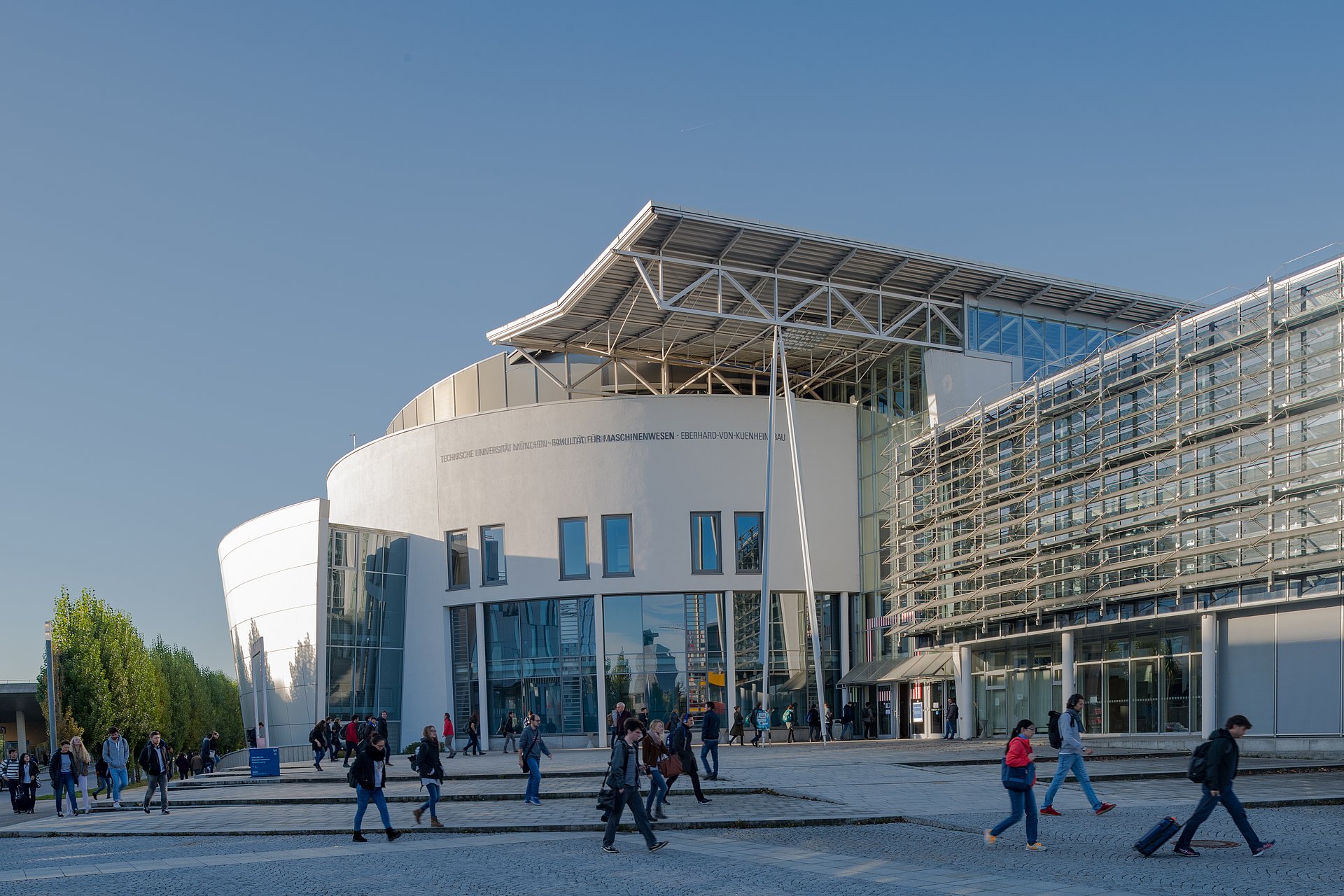Successful start to the fourth round of the Excellence Strategy
TUM in the running with three new Cluster of Excellence proposals

TUM President Prof. Thomas F. Hofmann said: "The successful evaluation of our draft proposals is the result of the professional excellence of the scientists involved and the coherent and ambitious research programs on issues of essential importance for the future of mankind. The submitted cluster concepts address a broad spectrum of highly innovative research projects. With a cooperative mindset, practiced interdisciplinarity and internationality, we now want to fully convince in the final evaluation round."
The new TUM Cluster of Excellence proposals
Three TUM proposals are in the running for funding as new Clusters of Excellence, including two together with Ludwig-Maximilians-Universität München (LMU) and one in cooperation with Julius-Maximilians-Universität Würzburg. A particular strength of the TUM applications is also due to the combination of expertise of the applicant universities and institutions of the Max Planck Society, the Leibniz Association, and the Helmholtz Association.
- Cluster for Nucleic Acid Sciences and Technologies - NUCLEATE
The cluster aims to accelerate the rapid progress in nucleic acid research and enable groundbreaking discoveries and therapeutic breakthroughs in biomedicine. With interdisciplinary approaches, NUCLEATE focuses on fundamental questions about new functions and the key mechanisms of nucleic acid modification and homeostasis to the development of new nucleic acid technologies and applications in medicine. TUM's cluster spokesperson is Prof. Stefan Engelhardt; co-applicants are the Ludwig-Maximilians-Universität München and the Julius-Maximilians-Universität Würzburg. - Biosystems Design Munich (BioSysteM)
This cluster aims to develop self-organizing molecular and cellular systems with programmable, life-like properties. The focus of BioSysteM ranges from biomolecular machines for biosynthesis and intelligent materials through biomedical microrobots and pattern-based therapeutics to the control of cell differentiation and organ formation as the basis for a new generation of revolutionary applications in biomedicine. TUM's cluster spokesperson is Prof. Friedrich Simmel; the Ludwig-Maximilians-Universität München is a co-applicant. - TransforM: Munich Center for Transformative Technologies and Societal Change
On the one hand, transformative technologies are seen as the key to major challenges such as climate change or energy, mobility, and healthcare provision; on the other hand, they are causing increasing innovation skepticism and public controversy. As an interdisciplinary social science cluster, TransforM aims to rethink theories, methods, and practices on participation, legitimacy, responsibility, security, and resilience in relation to transformative technologies for dynamically changing societies. At the same time, the cluster aims to research how these societal concerns can be anchored more effectively in innovation processes in order to reconcile technological advances and economic opportunities with social, ecological, and political interests in the future. The cluster spokesperson is Prof. Sebastian Pfotenhauer.
Detailed proposals must be submitted to the DFG by 22 August 2024. The approval of the respective Clusters of Excellence will be announced on 22 May 2025. Only universities that were also successful with at least two Clusters of Excellence in the second selection round can apply for additional funding as a University of Excellence.
Existing Clusters of Excellence at TUM
Four Clusters of Excellence already operated by TUM together with LMU are seeking an extension of funding under the Excellence Strategy:
- e-conversion: Fundamentals of energy conversion processes
The cluster researches the fundamental processes of converting and storing renewable energies, which are at the heart of the energy transition. While e-conversion 1.0 brings together fundamental phenomena of energy conversion in a holistic way, e-conversion 2.0 develops transformative energy concepts that combine energy conversion and storage into innovative bridging technologies. The focus is on multi-particle systems, complex materials, and dynamic interfaces, as well as AI-supported automation and high-throughput methods to accelerate the development of innovative energy concepts and materials many times over. - Munich Center for Quantum Science and Technology (MCQST)
MCQST researches the scientific foundations of complex quantum systems and creates the technological basis for quantum technology, a key future technology of the 21st century. The researchers address essential fields of application ranging from quantum computers, powerful quantum information systems, and quantum sensors to novel quantum materials. In the second funding phase, the Cluster of Excellence aims to expand basic research into the phenomenon of quantum entanglement and use it for innovative applications in the fields of data processing, communication, metrology, sensor technology, materials science, chemistry, and medicine. - ORIGINS: From the origin of the universe to the first building blocks of life
The Cluster of Excellence researches the origin and development of the universe and its structures, galaxies, stars, and planets. ORIGINS also investigates the path from nuclear building blocks to the emergence of life. In the second funding phase, the researchers are aiming to make groundbreaking discoveries in nuclear and particle physics, astrophysics, astrogeophysics, cosmology, and biophysics. Examples include research into the conditions for possible extraterrestrial life and the understanding of dark matter. - SyNergy - Munich Cluster for Systems Neurology
The "SyNergy" cluster investigates how complex neurological diseases such as multiple sclerosis, stroke, or Alzheimer's develop. Using systems neurology as a new interdisciplinary approach, researchers can map the many processes involved in neurodegenerative, neuroimmunological, and neurovascular diseases. In the new funding phase, the Cluster of Excellence aims to research the effects of the brain's energy supply, investigate immune reactions in more detail, better understand the resistance of neurons to diseases, and develop repair mechanisms for damaged cells.
What is the Excellence Strategy?
With the Excellence Strategy, the federal and state governments support scientific excellence, research cooperation, and the development of the profile of German universities. The funding program consists of two funding lines: the Clusters of Excellence, in which universities and research institutions conduct joint research, and the Universities of Excellence, whose leading position in research is to be expanded. Only universities that are successful in the funding competition with at least two clusters of excellence can apply for funding as a University of Excellence. The Excellence Strategy is implemented by the German Research Foundation (DFG) and the German Science and Humanities Council (WR). Both control the selection and regular evaluation of the universities and the funded research projects.




